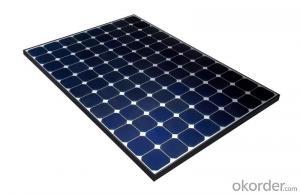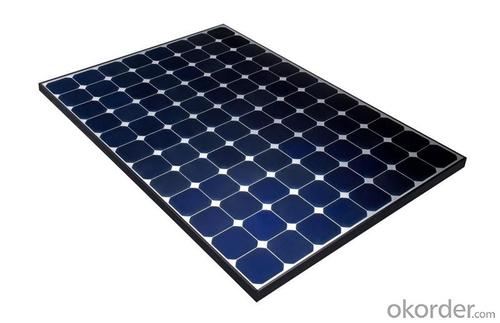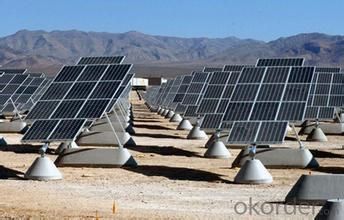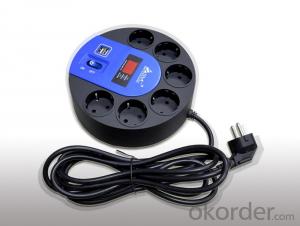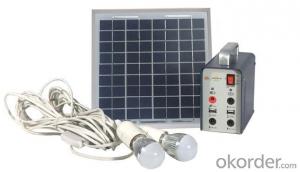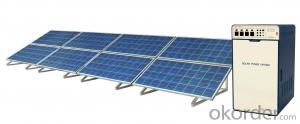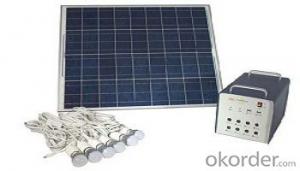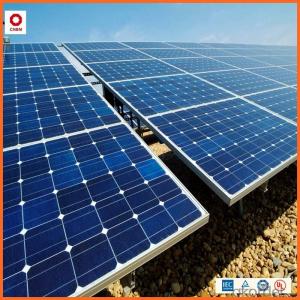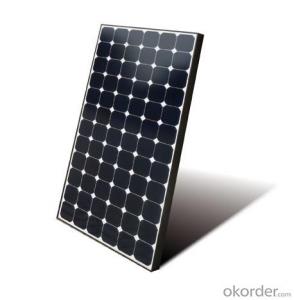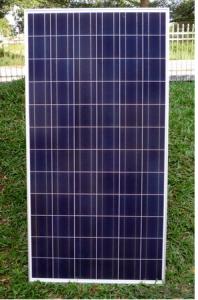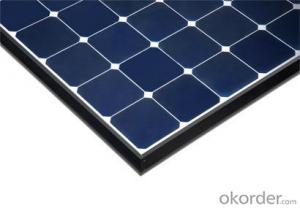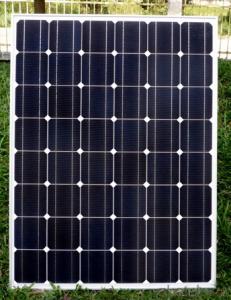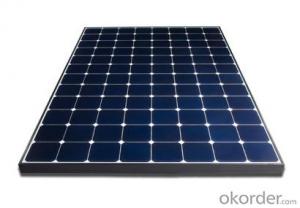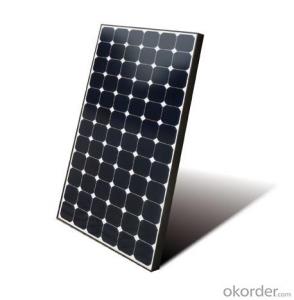CNBM Poly 200W Off Grid Solar Energy Systems Ambleside with 10 Years Warranty
- Loading Port:
- Tianjin
- Payment Terms:
- TT OR LC
- Min Order Qty:
- 100 watt
- Supply Capability:
- 1000 watt/month
OKorder Service Pledge
OKorder Financial Service
You Might Also Like
Specification
CNBM Poly 200W Off Grid Solar Sytem with 10 Years Warranty
Product description
Off-the-grid is a system and lifestyle[1] designed to help people function without the support of remote infrastructure, such as anelectrical grid. In electricity, off-grid can be stand-alone power system or mini-grids typically to provide a smaller community with electricity. Off-grid electrification is an approach to access electricity used in countries and areas with little access to electricity, due to scattered or distant population. The term off-the-grid (OTG) can refer to living in a self-sufficient manner without reliance on one or more public utilities. People who adopt this lifestyle are called off-gridders.[2]
The State of California is encouraging solar and wind power generation that is connected to the electrical grid to avoid the use of toxic lead acid batteries for night time storage.[12] Grid-tie systems are generally less expensive than off-grid systems due to the lack of additional equipment like charge controllers and the batteries. However, some systems may mitigate this difference by using old car batteries that can no longer supply enough current to start a car.[13]
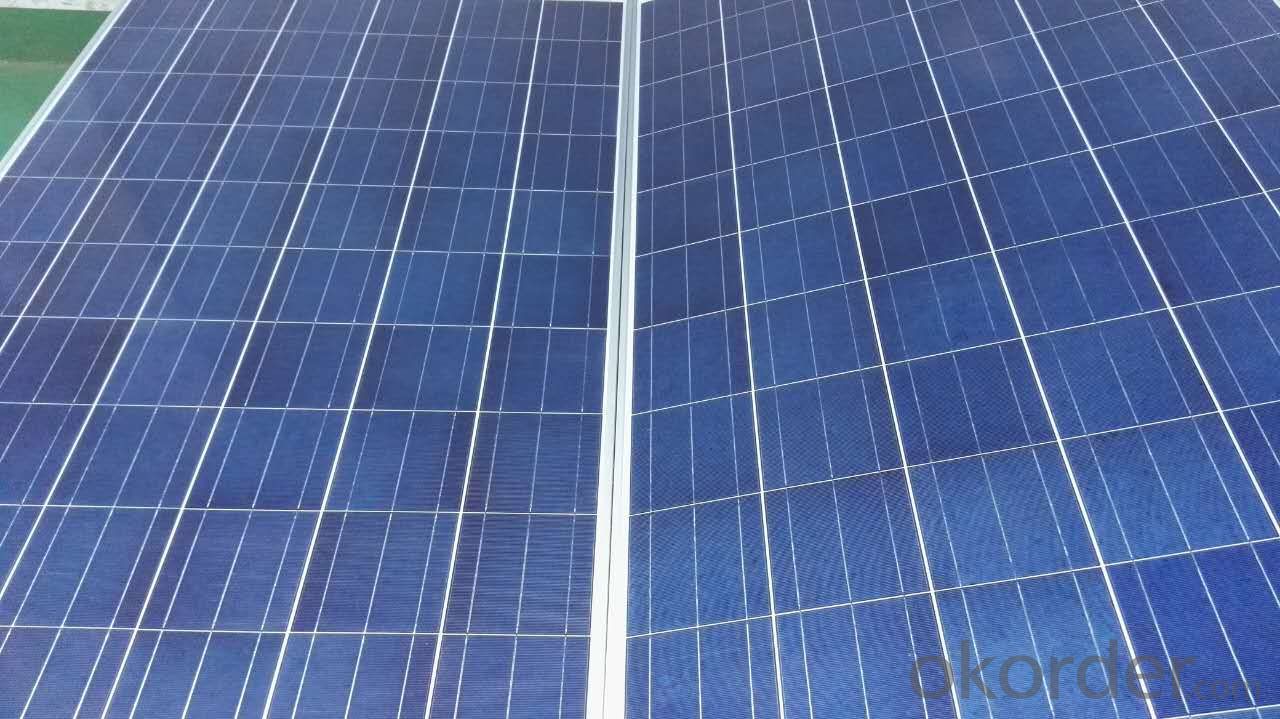
Application
Residential
Commercial
Industrial
Feature
Off-the-grid homes are autonomous; they do not rely on municipal water supply, sewer, natural gas, electrical power grid, or similar utility services. A true off-grid house is able to operate completely independently of all traditional public utility services. The idea has been recently popularized by certain celebrities including Ed Begley, Jr.[3] who stars in the Living with Ed[4] television show on the Home & Garden Television (HGTV) network. Actress Daryl Hannah promotes off-grid living and constructed her home in Colorado according to those principles, as does survival expert and Dual Survival co-star Cody Lundin,[5] who lives in a self-designed, passive solar earth house in the high-desert wilderness of Northern Arizona, collecting rainwater, composting waste, and paying nothing for utilities.[6][7]
Packaging
With carton and box
- Q: Can solar energy systems be used for powering public transportation systems like buses or trains?
- Yes, solar energy systems can be used for powering public transportation systems like buses or trains. Solar panels can be installed on the rooftops or in dedicated areas near the transportation infrastructure to generate electricity from sunlight. This renewable energy can then be used to charge the electric batteries of buses or trains, reducing their reliance on fossil fuels and lowering carbon emissions. Additionally, solar-powered charging stations can be set up along the transportation routes to ensure continuous energy supply.
- Q: Can solar energy systems be used in areas with limited access to solar energy consultants?
- Yes, solar energy systems can still be used in areas with limited access to solar energy consultants. While it may be challenging to have professional assistance, there are resources available online, guides, and tutorials that can help individuals and communities in these areas understand and set up solar energy systems. Additionally, some companies offer remote consultations and support services, making it possible to overcome the limitations of physical access to solar energy consultants.
- Q: What is the impact of dust storms on solar panel efficiency?
- Dust storms have a negative impact on solar panel efficiency as they can obstruct sunlight from reaching the panels, reducing their overall power output. The accumulation of dust particles on the surface of the panels can also create a layer that hinders the absorption of sunlight, further diminishing their efficiency. Regular cleaning and maintenance of solar panels are essential to mitigate the effects of dust storms and ensure optimal performance.
- Q: Can solar energy systems be used in powering banks or financial institutions?
- Certainly, solar energy systems have the capability to power banks and financial institutions. Actually, numerous banks and financial institutions across the globe are adopting solar energy systems as a viable and economical solution for their power requirements. Solar energy systems comprise of photovoltaic (PV) panels that convert sunlight into electricity. These panels can be installed on the rooftops or open spaces surrounding banks and financial institutions. The electricity generated can then be utilized to power various operations within these institutions, such as lighting, air conditioning, computers, ATMs, and other electronic devices. There are several advantages to utilizing solar energy systems for banks and financial institutions. Firstly, they provide a consistent and uninterrupted source of electricity, reducing reliance on the conventional power grid. This ensures continuous operations and minimizes the risk of power outages, which is crucial for financial institutions that require constant access to their systems. Furthermore, the use of solar energy aids in reducing the carbon footprint of banks and financial institutions, contributing to environmental sustainability. By utilizing renewable energy, they can significantly decrease greenhouse gas emissions and combat climate change. This aligns with the growing focus on corporate social responsibility and sustainable practices among businesses. Additionally, solar energy systems offer long-term cost benefits. Although the initial installation cost may be higher compared to traditional energy sources, solar systems have low operating and maintenance costs. Over time, the savings on electricity bills can be substantial, enabling banks and financial institutions to allocate those funds towards other investments or initiatives. Moreover, the installation of solar panels can enhance the reputation and brand image of banks and financial institutions. By visibly demonstrating their commitment to renewable energy, they can attract environmentally conscious customers and investors who value sustainable practices. In conclusion, solar energy systems are highly suitable for powering banks and financial institutions, providing a reliable, sustainable, and cost-effective solution. By utilizing solar energy, these institutions can fulfill their power requirements while reducing their environmental impact and bolstering their reputation in the market.
- Q: What is the role of batteries in a solar energy system?
- The role of batteries in a solar energy system is to store excess electricity generated by the solar panels during the day so that it can be used during periods of low or no sunlight, such as at night or during cloudy days. Batteries allow for the continuous supply of electricity, making solar energy systems more reliable and independent of the grid.
- Q: Can solar energy systems be used for powering electric gates?
- Yes, solar energy systems can be used to power electric gates. Solar panels can convert sunlight into electricity, which can then be used to operate electric gates. This provides a sustainable and environmentally friendly way to power gates, reducing reliance on traditional electricity sources.
- Q: Can I install solar panels myself?
- Yes, it is possible to install solar panels yourself, but it requires a certain level of expertise and knowledge in electrical work and roofing. It is recommended to hire a professional installer who is trained and experienced in handling solar panel installations to ensure safety and optimal performance.
- Q: Can solar energy systems be leased or financed?
- Yes, solar energy systems can be leased or financed. Many companies offer lease or financing options for installing solar panels on residential or commercial properties. These options allow individuals or businesses to enjoy the benefits of solar energy without the high upfront costs of purchasing and installing the system.
- Q: Can solar energy systems be used in areas with high humidity?
- Yes, solar energy systems can be used in areas with high humidity. Humidity does not directly affect the generation of solar power as it is the sunlight that is utilized by solar panels to produce electricity. However, it is important to maintain and clean the solar panels regularly in high humidity areas as moisture can accumulate and reduce their efficiency.
- Q: Can solar energy systems be used in areas with limited access to solar energy advocacy campaigns?
- Yes, solar energy systems can still be used in areas with limited access to solar energy advocacy campaigns. While advocacy campaigns can help raise awareness and support for solar energy, the installation and use of solar energy systems ultimately depend on the availability of sunlight. Even in areas with limited access to advocacy campaigns, solar energy systems can still be implemented as long as there is sufficient sunlight to generate electricity through solar panels. In fact, installing solar energy systems in such areas can bring numerous benefits, such as reducing reliance on fossil fuels, providing access to clean and renewable energy, and potentially lowering energy costs.
Send your message to us
CNBM Poly 200W Off Grid Solar Energy Systems Ambleside with 10 Years Warranty
- Loading Port:
- Tianjin
- Payment Terms:
- TT OR LC
- Min Order Qty:
- 100 watt
- Supply Capability:
- 1000 watt/month
OKorder Service Pledge
OKorder Financial Service
Similar products
Hot products
Hot Searches
Related keywords
